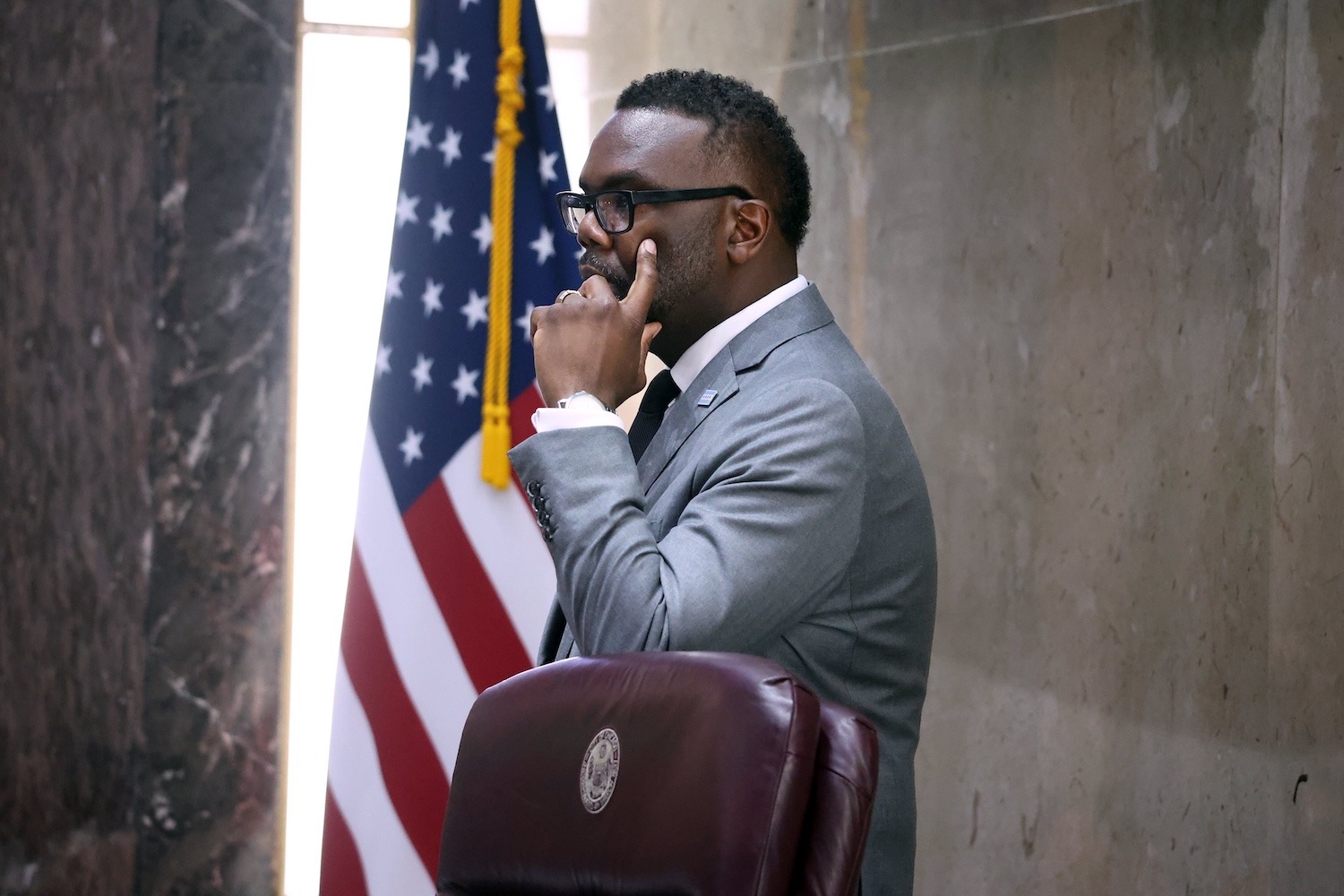Mayor Brandon Johnson is in a corner, up a creek, on an island, out on a limb.
Last week, Johnson lost a vote on a motion to instruct the police superintendent to extend or renew the ShotSpotter contract. The vote was 33 ayes, 14 nays, which means that two-thirds of the City Council was opposed to his plan to dismantle the gunshot detection technology. Almost all of his support came from the progressive/socialist wards on the Northwest Side, the north lakefront, and the Southwest Side. That’s the hard core of the mayor’s base, and it stuck with him on ShotSpotter, even though a recent ChangeResearch poll shows that 70 percent of Chicagoans support keeping the program.
“In the 49th Ward, we don’t support ShotSpotter,” said Alderperson Maria Hadden, who represents Rogers Park. “For the most part, we’ve seen the data. We have similar concerns about this particular technology. I don’t think this forum is the space to solve this problem. I don’t think it’s right to give this kind of contracting authority to the superintendent. This is the contracting authority you’ve got. You represent the entire city.”
40th Ward Alderperson Andre Vasquez, who represents Lincoln Square and Andersonville, called ShotSpotter “a shoddy business. They said they were going to reduce violence. It did not do that. It’s a little bit ridiculous to take the power from the mayor and give it to one of his employees. We do need technology that works and keeps people safe. I just think ShotSpotter isn’t it.”
Alderpersons from the South and West sides, where ShotSpotter’s 28,000 microphones are in operation, had different points of view. Tenth Ward Alderperson Peter Chico, a former police officer, testified that ShotSpotter helped him reach crime scenes sooner.
“Many times, I’d go to these scenes and talk to those families, and those families were very happy that ShotSpotter was in place, because they don’t know what the outcome could have been if we’d waited another one minute, two minutes, three minutes,” said Chico, who represents Hegewisch and East Side. “We want to invest in people. What better way to invest in people than providing a technology that saves their life?”
Fifth Ward Alderperson Desmon Yancy, whose ward includes Hyde Park and Greater Grand Crossing, said that 72 percent of his constituents favored maintaining ShotSpotter.
“ShotSpotter might be an imperfect solution to prevent gun violence, but 5th Ward residents support ShotSpotter, and for many, ending the use of this technology would make them feel less safe.”
The mayor won the South and West Sides during the 2023 election. Yet only one South Side alderperson, William Hall of the 6th Ward, and one West Side alderperson, Jason Ervin of the 28th, voted with the mayor on ShotSpotter.
Johnson is finding himself just as isolated in his campaign to fire Chicago Public Schools CEO Pedro Martinez, because Martinez refuses to take out a $300 million short-term loan to pay teachers pensions and salaries. Johnson has the support of 35th Ward Alderperson Carlos Ramirez-Rosa, his former floor leader. Ramirez-Rosa represents Logan Square and Avondale, and is an outspoken advocate of Johnson’s left-wing governing style. But 22 alders signed a letter “urging members of Chicago’s school board to stand firm in their support of CEO Pedro Martinez.”
“CEO Martinez’s responsible refusal to enter into short term, high interest loans to address budgeting shortfalls should be lauded, not punished,” the letter read. “We stand in firm opposition to Mayor Brandon Johnson’s request for CEO Pedro Martinez’s resignation. We also strongly call upon the School Board to continue its support for Chicago Public Schools CEO Pedro Martinez and to stand its ground against the unprecedented demands of the Chicago Teachers Union to fire him.”
All 22 of the alders who signed also voted for the ShotSpotter ordinance. Missing were the names of Johnson’s progressive cabal. Moderate alders are grumbling that the mayor is governing “for the extremes” and “in the name of his well-funded extremist allies.” It’s nice to have a base, but when that base makes up only a third of your constituents, that’s a tough place from which to run the city.



